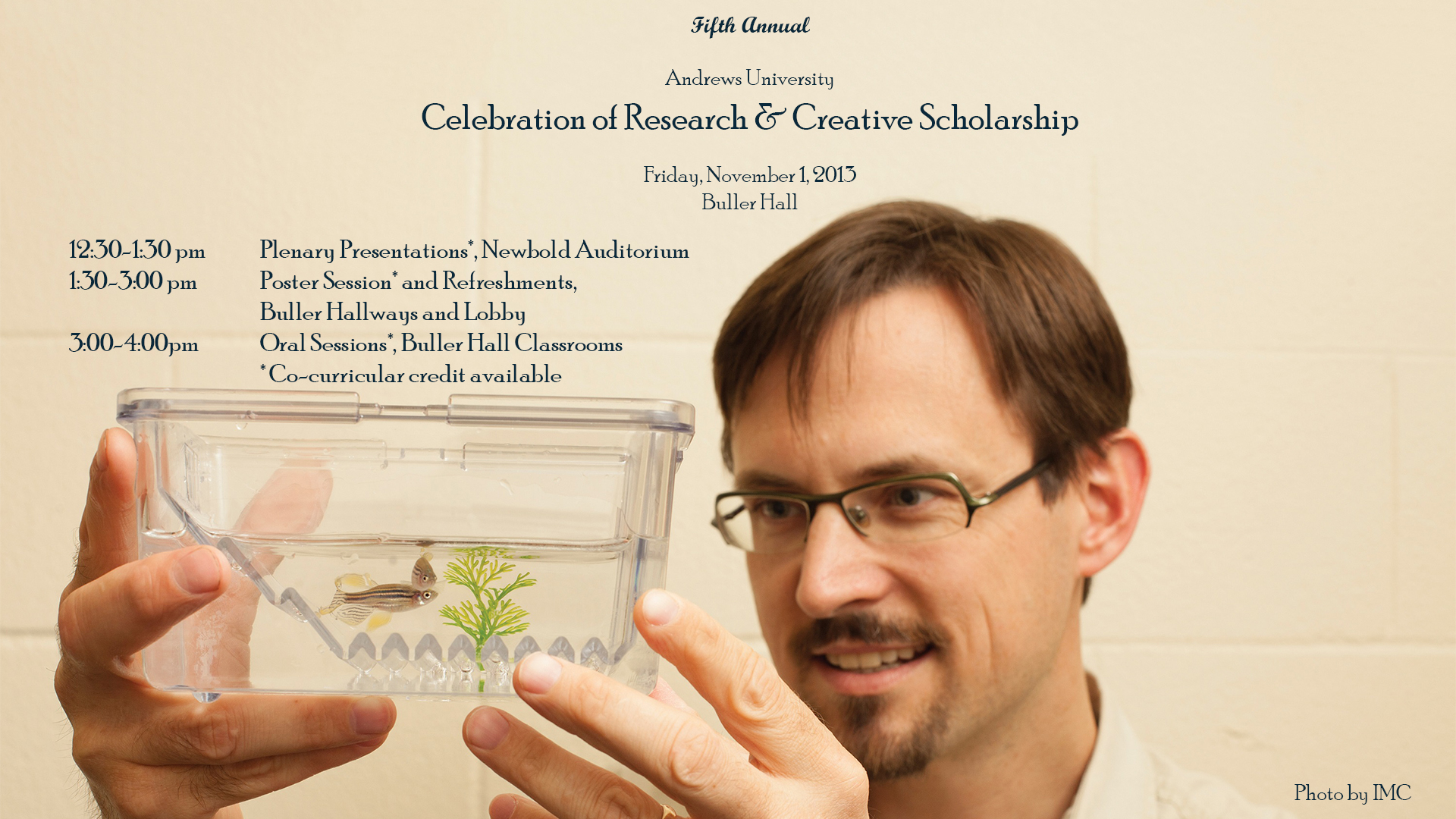P-28 The effects of low-control, high-predictability stress on spatial memory: preliminary data in a new animal model
Presenter Status
Psychology and Integrative Neuroscience
Second Presenter Status
MS Student, Department of Biology
Third Presenter Status
MS Student, Department of Biology
Fourth Presenter Status
Psychology and Integrative Neuroscience
Fifth Presenter Status
Psychology and Integrative Neuroscience
Sixth Presenter Status
Department of Biology
Seventh Presenter Status
Psychology and Integrative Neuroscience
Preferred Session
Poster Session
Location
Buller Hallway
Start Date
1-11-2013 1:30 PM
End Date
1-11-2013 3:00 PM
Presentation Abstract
Humans can experience feelings of stress even in the absence of real danger, simply by believing that there could be danger, or by anticipating what will happen in the future. This is termed “psychological” stress. We used a recently developed animal model of psychological stress to explore the roles of the stressor’s control and predictability in influencing performance in a spatial memory task (Barnes Maze). Previous studies using this model showed that rats exposed to a high-control, low predictability form of psychological stress showed memory deficits compared to controls when testing was done under normal conditions. The spatial memory deficits were specifically related to the prefrontal cortex (PFC). Therefore the memory impairment may have indicated a possible shift from the methodical, reflective control of the prefrontal cortex to more rapid, reflexive actions associated with the amygdala and other subcortical brain areas. We hypothesized that this neural shift could lead to improved spatial memory performance if the same memory task was performed under aversive conditions. Consistent with our hypothesis, the current experiment indicates that high-control, low predictability stress resulted in improved spatial memory compared to controls when the animals tested under aversive conditions.
P-28 The effects of low-control, high-predictability stress on spatial memory: preliminary data in a new animal model
Buller Hallway
Humans can experience feelings of stress even in the absence of real danger, simply by believing that there could be danger, or by anticipating what will happen in the future. This is termed “psychological” stress. We used a recently developed animal model of psychological stress to explore the roles of the stressor’s control and predictability in influencing performance in a spatial memory task (Barnes Maze). Previous studies using this model showed that rats exposed to a high-control, low predictability form of psychological stress showed memory deficits compared to controls when testing was done under normal conditions. The spatial memory deficits were specifically related to the prefrontal cortex (PFC). Therefore the memory impairment may have indicated a possible shift from the methodical, reflective control of the prefrontal cortex to more rapid, reflexive actions associated with the amygdala and other subcortical brain areas. We hypothesized that this neural shift could lead to improved spatial memory performance if the same memory task was performed under aversive conditions. Consistent with our hypothesis, the current experiment indicates that high-control, low predictability stress resulted in improved spatial memory compared to controls when the animals tested under aversive conditions.



